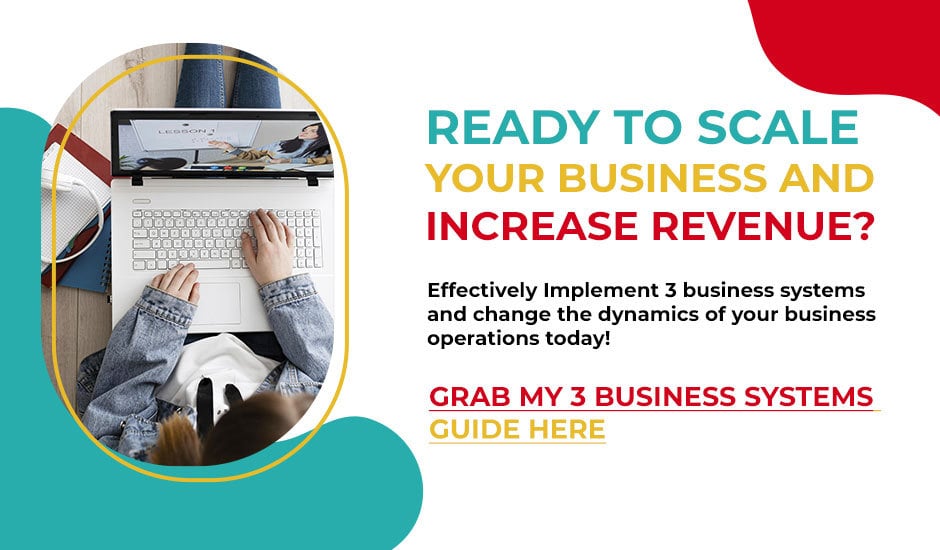Setting your salary as a business owner can be a daunting task. The most controversial questions in the business world are how much you should be paying yourself and when you should start giving yourself a salary.
In most cases, business owners either end up paying too little or too much. Being a business owner means that you get to decide how much you want to pay yourself. You need to compensate for your efforts and even reward yourself sometimes with a bit of a hike in the salary.
To decide whether you should start paying yourself, you need to consider these main factors:
Your salary as a business owner is generally impacted by the specific type of business, i.e., whether it's a sole proprietorship or partnership. Business owners often take an owner’s draw if it's a sole proprietorship. In a partnership, the profits and losses are distributed based on the shares.
The business stage is one of the biggest factors that help you determine whether you should pay yourself a salary or not. In the early stage of their business, many entrepreneurs choose not to take any money. However, as they feel confident about their financial situation and have a steady cash flow, they often start taking too much out without realizing the consequences.
Even when your business has set a firm hold in the market, you need to pay careful attention to the business expenses before starting a payroll for yourself. You need to evaluate the current expenses, revenue, and profit. You should also think about future expenditures, such as taxes or hiring new employees.
When you are trying to build a brand, it can be obvious to neglect personal expenses. However, you need to be very mindful of the stability of your personal finances. You can’t invest all of your life’s earned money into your business and forget about your rent, mortgages, and insurances. If your business is in its early stage and your personal finances are not looking strong, it would be a good idea to seek a small-business loan.
Once you have determined the right type of business and selected the optimal payment method, you need to look at how much you can pay yourself without over-burdening the business. A sole proprietorship's general rule of thumb is that the salary must be drawn from the business’s net profit. This process ensures that all of your other business expenses are already covered and paid before you take out your salary.
Don’t just decide on a random number and start drawing a bi-weekly cheque in your name. You need to seek help from a professional accountant who can help you analyze your profit and loss statements and then determine the right number for your monthly salary. You can also opt to look at what other local business owners are paying themselves. Many entrepreneurs choose to take a certain percentage of their business’s net profit.
When you have decided to start paying yourself, you need to spend some time evaluating the profit and losses of each month that your business has been running. First, you need to know what your business needs to run smoothly. You can start by creating a formal list of your current business expenses, as it will help you determine the cash flow requirement for your business.
In addition to monthly expenses, you need to start keeping a small amount for rainy days and call it emergency funds. These emergency funds should be enough to cover a minimum of 30 days and a maximum of 6 months. You can start by saving money for 30 days, and slowly you can increase the savings to have an emergency fund set up for 6 months.
Furthermore, it would help if you considered the expenses that might occur in the near future, such as new tools, resources, and even hiring new employees.
After thinking about all of the expenses, it can be impossible to pay yourself. You would probably want to just keep the money in the business and avoid paying yourself. But don’t make that mistake. Paying yourself offers many advantages in your personal finances. For example, you can write off some of your personal expenses, such as cell phone bills, as business expenses and get tax rebates.
If you are unsure about your salary, you need to talk to an accountant. They would have the right advice for you and help you understand what’s permissible regarding business owners’ salaries and other tax benefits.
Suppose you don’t want to spend a hefty amount of money on hiring a full-time accountant for your business. In that case, you can invest in accounting software, which allows you to keep track of all of your business expenses, profits, losses, and other ledgers. It will also help set up a payroll schedule for your whole staff and keep your business finances in check.
Here are some of the business finances mistakes that you need to avoid:
One of the most common mistakes business owners make is mixing their personal and business finances. Some of these mixies can be using business credit cards for buying groceries, using the personal account to pay business utility bills, etc. These can adversely affect the finances of your business.
Even if you are a business owner, you still need to pay personal income tax. The business tax and income tax are two different things, and you need to make sure to budget both of them in your business and personal expenses, respectively.
Being a business owner means that you have to focus on millions of other things, but that does not mean that you shouldn’t compensate yourself for your hard work. You need to set up a schedule to consistently pay yourself. You can choose to automate your business’s finances by following my three business owner system guide, which helps you streamline your business operations.
